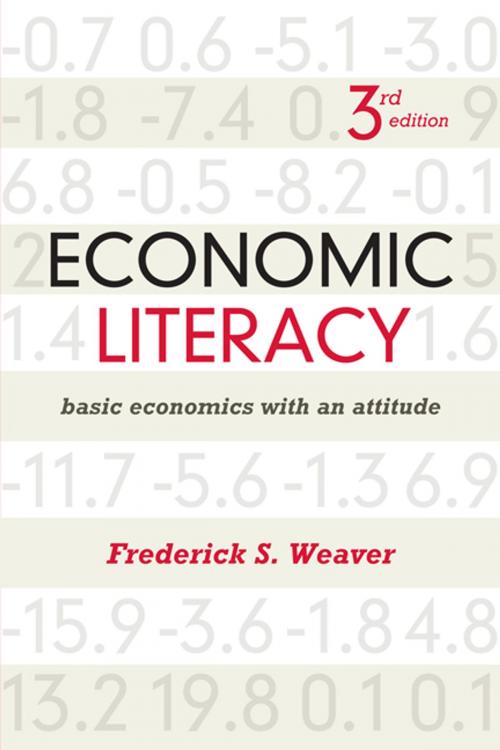Economic Literacy
Basic Economics with an Attitude
Business & Finance, Economics, Theory of Economics| Author: | Frederick S. Weaver | ISBN: | 9781442204232 |
| Publisher: | Rowman & Littlefield Publishers | Publication: | October 16, 2010 |
| Imprint: | Rowman & Littlefield Publishers | Language: | English |
| Author: | Frederick S. Weaver |
| ISBN: | 9781442204232 |
| Publisher: | Rowman & Littlefield Publishers |
| Publication: | October 16, 2010 |
| Imprint: | Rowman & Littlefield Publishers |
| Language: | English |
In its third edition, Economic Literacy: Basic Economics with An Attitude, explains the logic, language, and worldview of economic theory while maintaining the engaging and accessible style that has made earlier editions so successful. While covering the fundamentals of the discipline, the author also includes a wide range of new material focusing on the structure, causes and results of the 'Great Recession'. From microeconomics and macroeconomics to the composition of international and domestic economies, Economic Literacy also makes the key distinction between economics as an academic discipline and the economy as a practical reality. By analyzing this crucial difference, the book encourages students to think critically about the distinctive viewpoint proposed by academic economics and its influence on politics and culture. Using this approach, readers will be enabled to understand both current affairs and professional economics literature, making this book uniquely beneficial for students both practically and theoretically. Never grim, often witty, and frequently insightful into our turbulent financial times, Economic Literacy's third edition is a must for students of economics everywhere.
In its third edition, Economic Literacy: Basic Economics with An Attitude, explains the logic, language, and worldview of economic theory while maintaining the engaging and accessible style that has made earlier editions so successful. While covering the fundamentals of the discipline, the author also includes a wide range of new material focusing on the structure, causes and results of the 'Great Recession'. From microeconomics and macroeconomics to the composition of international and domestic economies, Economic Literacy also makes the key distinction between economics as an academic discipline and the economy as a practical reality. By analyzing this crucial difference, the book encourages students to think critically about the distinctive viewpoint proposed by academic economics and its influence on politics and culture. Using this approach, readers will be enabled to understand both current affairs and professional economics literature, making this book uniquely beneficial for students both practically and theoretically. Never grim, often witty, and frequently insightful into our turbulent financial times, Economic Literacy's third edition is a must for students of economics everywhere.















